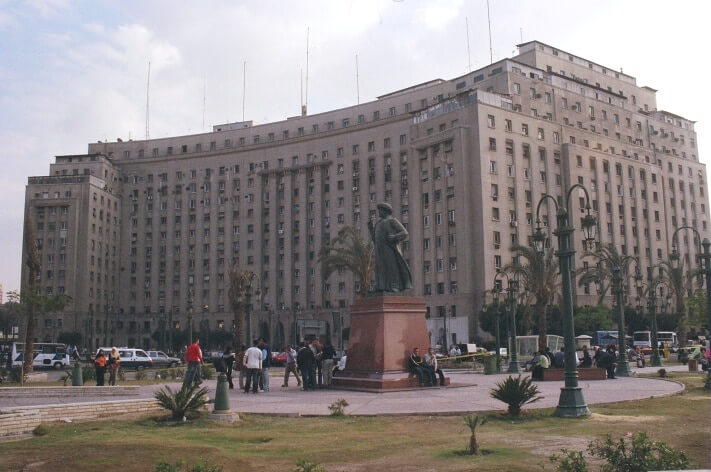With the government’s commitment to pursue anti-corruption efforts in the state’s administrative apparatus, the complexity of Egypt’s governance system and the fact that it has been long caught in the snarls of bureaucracy may require more drastic measures. The large number of the country’s ministries and legislations contribute to the entanglement of the yarn holding Egypt’s public institutions afloat – leading to a dire need of administrative reform.
In light of that, the Egyptian Center for Economic Studies (ECES) hosted a roundtable discussion focusing on a series of working papers entitled? “Addressing bureaucracy: The key to institutional reform.”
The panel consisted of former president of the Central Agency for Organization and Administration Safwat El-Nahas, chairman of Vodafone Egypt Hany Mahmoud and vice-dean of the Graduate School of Management at the Arab Academy for Science, Technology and Maritime Transport Tarek Al-Hosary.
Duplicity of administrative roles
“The structure of the administrative apparatus is inherently complex and gigantic in its nature,” the study says, adding that Egypt has the highest number of ministries (33) compared to other countries like the United States (15), South Africa (15), France (16), Japan (10) and Singapore (12).
It argues that there is a significant overlap of functions between ministries. The most prominent of those cases are the ministry of agriculture and land reclamation, and the ministry of irrigation and water resources management. The Ministry of Electricity and Renewable Energy and the Ministry of Petroleum also suffer from the same dilemma, as well as the ministries of manpower and immigration, and foreign affairs.
According to the paper, eliminating bloated administrative bureaucracy requires the reduction of the number of ministries to 15, and the merge of redundant institutions in order to curb unnecessary public expenditure.
Commenting on the findings of the study, El-Nahas stressed the need to institutionalize principles of accountability and transparency in the public ?administration sphere.
He highlighted the need of a full-scale implementation of the Civil Service Law and the establishment of a non-governmental quality assurance agency.
“The agency ?would be responsible for ensuring the improvement of workflow processes in the administrative ?apparatus and the enhancement of internal controls to monitor the performance of the government’s flagship programs,” he illustrated.
Neglecting human capital development
High labor costs, coupled with low productivity are one of the frailties associated with the state’s administrative apparatus, the study finds. “As much as LE270 billion were solely earmarked for labor costs in the 2018/2019 budget.”
Since funds allocated to employee trainings are inadequate, the study recommends that more public money should be spent on improving and “upskilling” the workforce in order for them to remain competitive in today’s job market.
Human resource development has been neglected for years, Mahmoud explained, stressing the importance of including young people in the top echelons of the state’s administrative system.
Overlapping laws
“Hyper-centralization spawns insurmountable ?bureaucracy,” the study suggests, shedding light on the system’s lack of proper technological infrastructure and inefficient, traditional budgeting system.
In legal terms, the study points out that Egypt is a highly bureaucratic state when it comes to laws and regulations: the legal ?system has around to 53,358 legislations, some of which date back to ??the 1800s.
“The state administrative system is inherently affected by the ambiguous, ?overlapping laws that contain ?easily?-?exploited loopholes? – which, thereby, ?consolidates the bureaucratic corruption?, ?malfeasance and ?poor governance practices?,” the study adds.
In a nutshell, the study calls for a modernized, well-developed legal frame to ?be in place, stressing the need to regularly monitor the work of local government and to expand the use of ?technology in public financial management and administration.
?“The government should be the regulator of the services, not the provider,” the study recommends, highlighting the importance of the integration of private investments in the state’s service sector.









